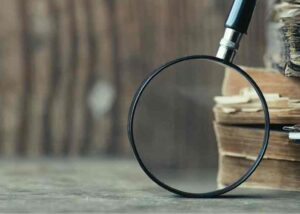Is the Hadith that says, a woman is special if her first born is a daughter, Sahih?
Quran
Hadith
Islamic Text
The Hadith that says a woman is blessed if her first born is a daughter is in the collection by al-Kharaiti. This particular narration is fabricated.
هَذَا حَدِيثٌ مَوْضُوعٌ عَلَى رَسُولِ اللَّهِ صَلَّى اللَّهُ عَلَيْهِ وَسَلَّمَ. وَقد اتّفق فِيهِ جمَاعَة كذابون. أما سالم فَقَالَ يَحْيَى: هُوَ كَذَّاب. أما حَكِيم فَقَالَ أَبُو حَاتِم الرَّازِيّ: مَتْرُوك الحَدِيث. وَأما الْعَلاء بْن كَثِير فَقَالَ أَحْمَد وَيَحْيَى: لَيْسَ بشئ، وَقَالَ ابْنُ حِبَّانَ: يَرْوِي الْمَوْضُوعَاتِ عَن الاثبات. (الموضوعات)
This Hadith is a fabrication against the Messenger of Allah ﷺ. A group of liars have converged upon it. As for Salim, (Imam) Yahya said he is a liar. As for Hakeem, (Imam) Abu Hatim al-Raazi said he is Matrook (very weak) in Hadith narrations. As for al-Ala bin Katheer, (Imams) Ahmad and Yahya have said, he is nothing. And (Imam) Ibn Hibban has said [that] he (al-Ala bin Katheer) fabricates from sound narrators. (Imam Abd al-Rahman bin al-Jowzi, al-Mowdo’aat).
In the Nass (text) above we find that Imam Ibn al-Jowzi considered this Hadith to be fabricated. This is because he identified three problematic narrators and alluded to them being liars. The liars in this hadith are: Salim bin Ibrahim; Hakim bin Hizam; and al-Ala bin Katheer. The first of these individuals are Salim, who narrated from Hakeem, who narrated from al-Ala.
إِنَّ مِنْ بَرَكَةِ الْمَرْأَةِ تَبْكِيرَهَا بِالأُنْثَى _ إلخ . رَوَاهُ الْخَرَائِطِيُّ عَنْ وَاثِلَةَ بْنِ الأَسْقَعِ مَرْفُوعًا وَفِي إِسْنَادِهِ: الْعَلاءُ بْنُ كَثِيرٍ الدِّمَشْقِيُّ يَرْوِي الْمَوْضُوعَاتِ وَآخَرٌ مَتْرُوكٌ وَقَدْ رَوَاهُ ابْنُ مَرْدُوَيْهِ فِي التَّفْسِيرِ وَرَوَاهُ أَيْضًا: أَبُو الشَّيْخِ مِنْ حَدِيثِ عَائِشَةَ رَضِيَ اللَّهُ عَنْهَا. (الفوائد المجموعة في الأحاديث الموضوعة)
The narration: From the blessings of a woman is her first born being a female. It was narrated by al-Kharaiti from Wathilah bin al-Asqa’ as a prophetic narration. In the chain is al-Ala bin Katheer al-Dimashqi, he is a narrator of fabrications. Another of the narrators is Matrook. Indeed Ibn Marduwayhi narrated it in the Tafseer. Abu al-Shaykh also narrated it from (Sayidah) Ayeshah (May Allah Most High be pleased with her). (Imam al-Showkani, al-Fawa’id al-Majmoo’ah).
Regarding this narration, Imam al-Showkani was less specific in his critique. However, he did specify al-Ala as a fabricator. In the Nass below, Imam al-Sayuti also declared the narration a fabrication. This is because he specified Hakeem and al-ala as being concerning.
مَوْضُوع: حَكِيم مَتْرُوك والْعَلَاء يرْوى الموضوعات. (اللآلىء المصنوعة في الأحاديث الموضوعة)
Fabricated. Hakeem is Matrook (very weak). And al-Ala narrates fabrications. (Imam al-Sayuti, al-La’ali al-Masno’ah).
It is important to note that this is the ruling for this particular hadith narration and any other narration that have these problematic narrators in the chain. Therefore, if one were to find a narration without any of them, then that Hadith would have to be judged on its own merits.
Moreover, it is not enough to simply claim that there is another narration without these narrators. This is the practice of many people. When they are informed that the narration is fabricated or very weak, they say there is another narration. This is insufficient. Rather, the narration must be sourced to an original book of Hadith, not a secondary or tertiary book, and it must have a complete chain. Unfortunately, many people are unaware of the fundamentals of the science of Hadith and will fail to meet this most basic of requirements when attempting to prove Hadith.
Lastly, Our love for the blessed Prophet ﷺ dictates that we are protective regarding Hadith attributed to the Prophet ﷺ. It is not acceptable for someone who claims to love the Prophet ﷺ to show no interest in Hadith authenticity. Rather, someone who truly loves the Prophet ﷺ will demand that people take care with the Hadith they attribute to the Messenger of Allah ﷺ and will request accurate referencing.
And Allah Most High Knows Best.
-Answered by Shaykh Noorud-deen Rashid (06.04.2023)






